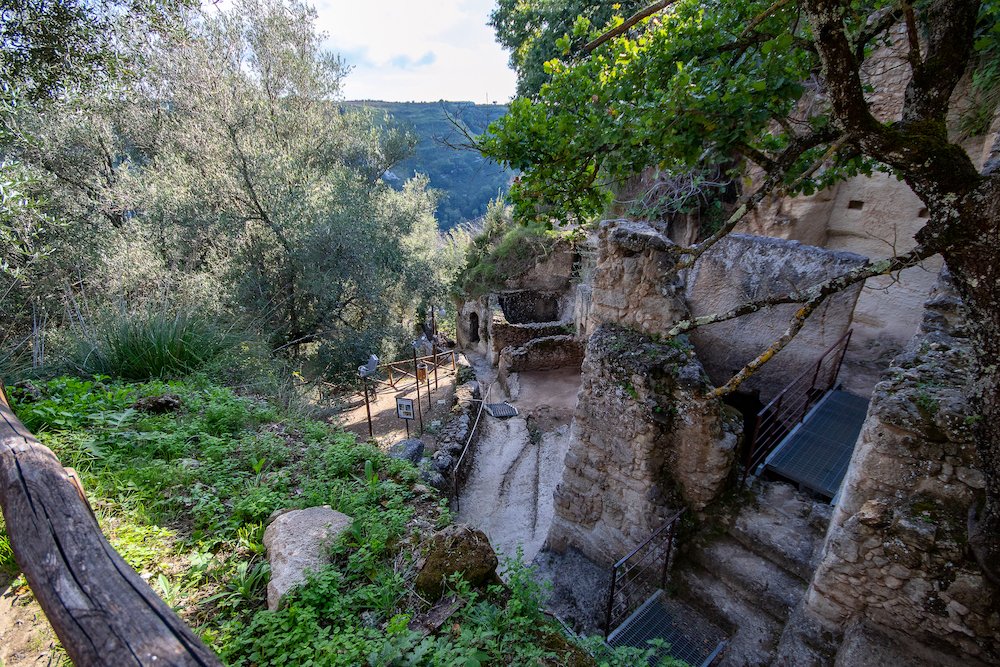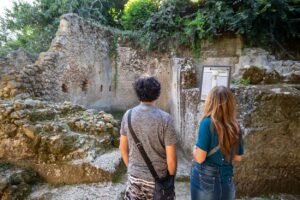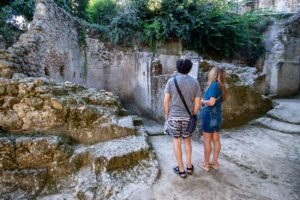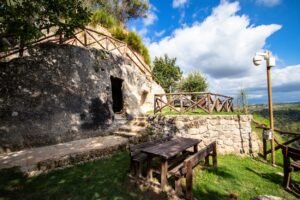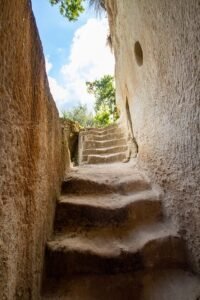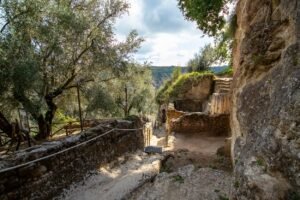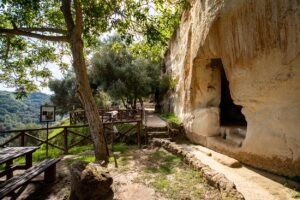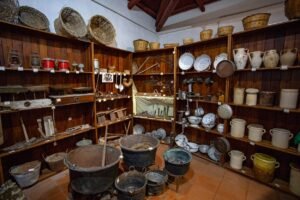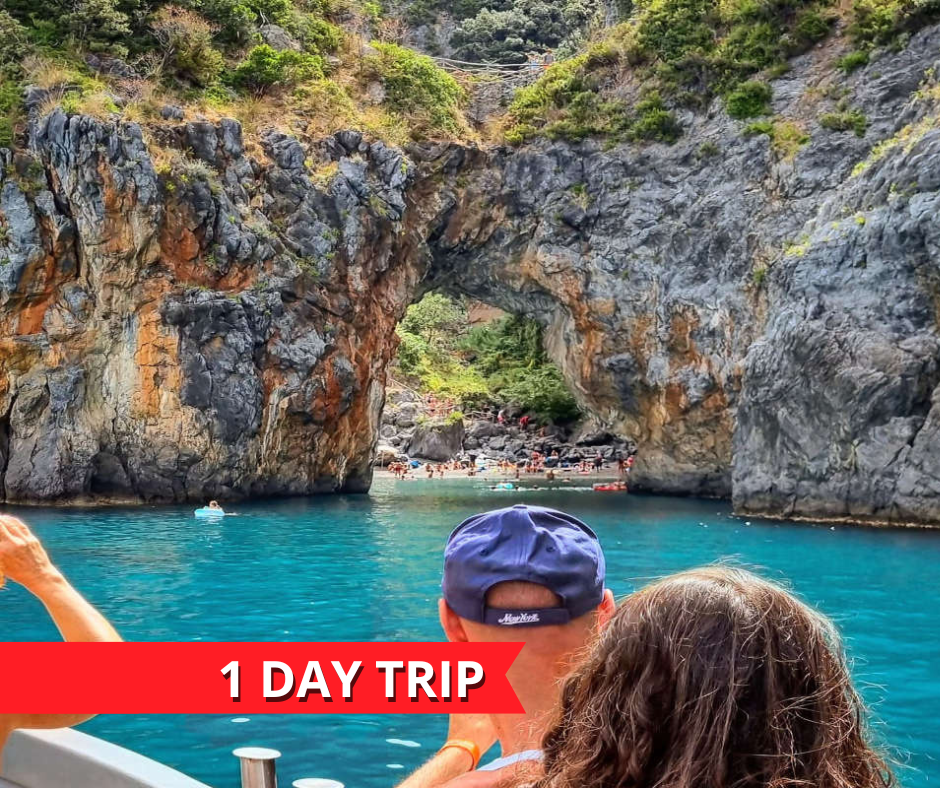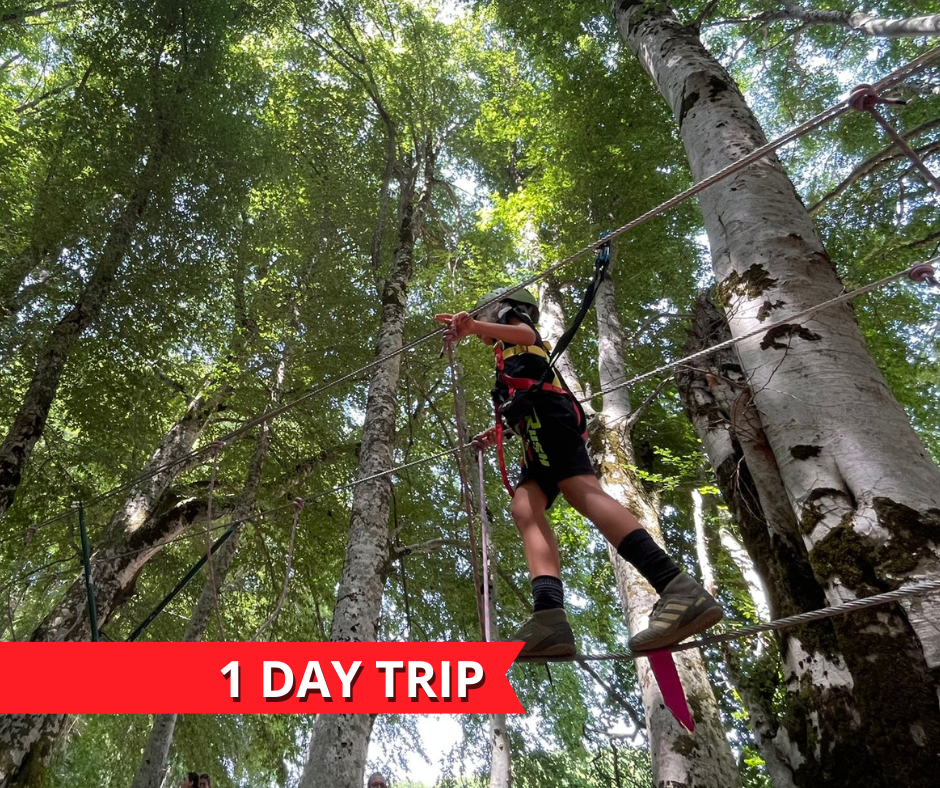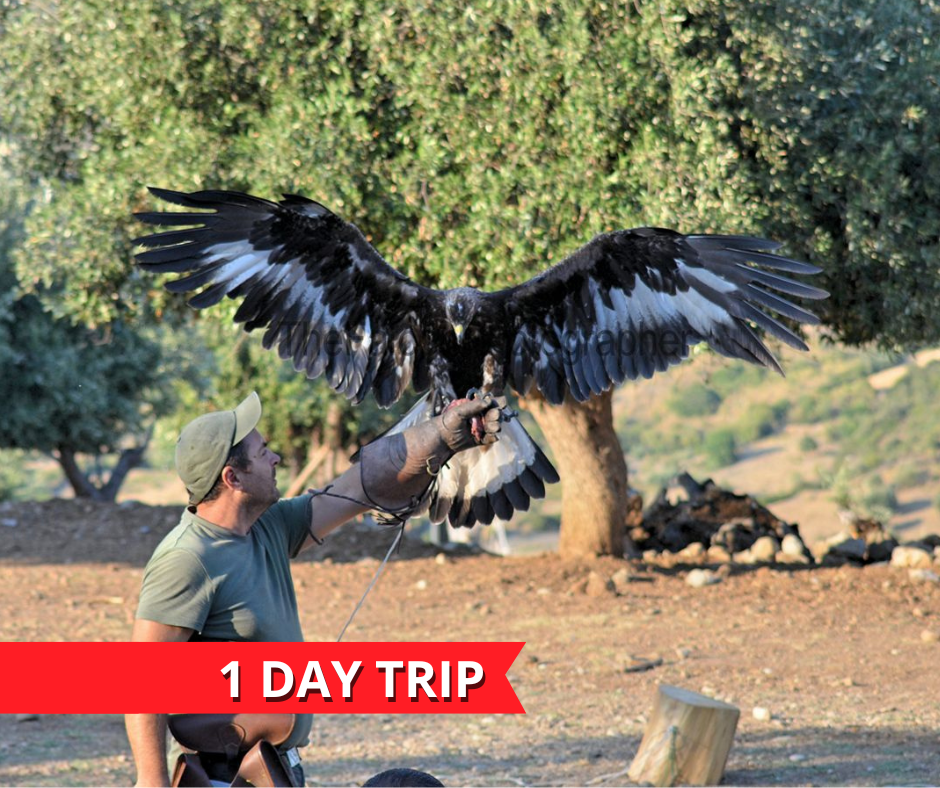The small village of Zungri is located 500 metres above sea level, on the Poro plateau, a short distance from Tropea and the Costa degli Dei. Its origins, like many Calabrian villages and towns, are rooted in Prehistory and it was certainly a known and frequented centre even in Roman times. But it was during the Middle Ages that Zungri experienced a very interesting period from a settlement point of view: during this era, in fact, Basilian monks arrived in this territory to seek refuge from the invasions and looting by the Arabs, who were threatening the East. In Zungri, the monks settled in a rocky area where, by digging into the mountain walls, they carved out dwellings and storerooms for provisions. Today, the small village consists not only of the rocky area but also of the historic centre, which houses small dwellings and ancient buildings with simple architecture. Continuing on, you can reach the 'upper' part of the village where you can visit the 'Cichello Gasparri' municipal villa with its bronze sculpture by local artist Michele Zappino, whose works adorn the streets and symbolic places of the village.
In Zungri, the most evocative and interesting experience is undoubtedly a visit to its caves. Nicknamed the 'Matera of Calabria' or the 'little Petra of Calabria', you will discover that these settlements dug centuries ago directly into the rock constitute a small universe that seems to be in a dimension all of its own. The rock settlement, known to man since the 14th century, has been dated between the 9th and 10th centuries and extends over an area of about 3000. Here, it is possible to walk among the approximately 100 cave dwellings consisting of single or double rooms. The settlements are interconnected by narrow streets and stairways that also lead to underground rooms. The cave dwellings have niches, niches and sleeping quarters inside them. Exploring the rocky village of Zungri is an experience to be had at least once in one's life, to go back in time to the time of the mystical Basilian monks and the population of the 'Sbariati'. Another experience not to be missed is a visit to the Museum of Rock and Peasant Civilisation, located in the vicinity of the caves, in a former oil mill. Here, numerous artefacts related to the local rock and peasant civilisation are kept, including devotional images, parts of men's and women's daily clothing and some wedding costumes.
Although Zungri is located inland, it is only a few kilometres from Spilinga and Tropea and the coastline of the Costa degli Dei. The flavours found in this area, therefore, are influenced by the coastal towns and take the form of traditional dishes in which red onion, nduja and homemade pasta are the masters of the table. Spilinga nduja, in particular, is the condiment par excellence: excellent on crostini, bruschetta and bread, it is also used to season, together with ricotta cheese, fileja, a semolina-based grilled pasta that can also be enjoyed with a red onion sauce from Tropea, which stands out for its sweeter flavour and more delicate taste. Also rich in flavour are potatoes sautéed with green peppers, a typical vegetable of the Costa degli Dei characterised by its bitter aftertaste. The same peppers are a tasty side dish cooked on the grill and flavoured with red onion. Homemade bread has a long tradition and is perfect with vegetables, cheese or dried tomatoes in oil. The desserts draw from the gastronomy of Vibo Valentia, the most particular of which are the ciciriati with a dough made of chickpeas, walnuts and cocoa.
Although Zungri is a small village, it has its annual events, linked to the traditions and nature of the place. During the Christmas period, the Living Crib is organised, an evocative event in which the rocky village of Zungri is the evocative and exciting setting, ideal for hosting this heartfelt representation. In mid-August, instead, the Potato Festival is held, recalling this foodstuff on which the local 'poor' peasant diet was based in the past. During the event, it is possible to taste it in many recipes such as 'curujicche' gnocchi, peperonata, and baked or fried potatoes. Finally, not far from Zungri, still in August, there is the Sagra dei Fileja di Cessaniti (Cessaniti's Fileja Festival), a not-to-be-missed event for food lovers, dedicated to the traditional handmade grilled pasta that can be tasted with different seasonings, all immersed in a cheerful and festive atmosphere, to the rhythm of popular music.
